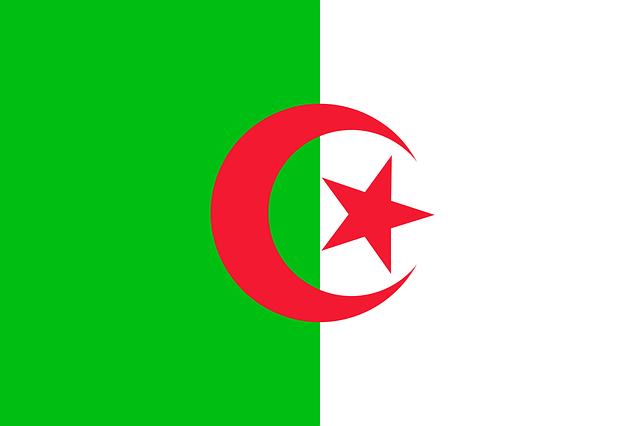قائمة الآلهة الرومانية
| روما القديمة |
|---|
|
ماركوس أورليوس (مغطياً رأسه)
يقدم أضحية في معبد جوپيتر |
| ممارسات واعتقادات |
|
| الكهانة |
|
| الآلهة |
الأباطرة المؤلهون:
|
| موضوعات متعلقة |
|
الآلهة الرومانية القديمة الأكثر شيوعاً اليوم هم أولئك الذين قرنهم الرومان مع نظرائهم اليونانيين (انظر interpretatio graeca)، التي تدمج الأساطير والأيقونات وأحياناً الممارسات الدينية اليونانية القديمة في الثقافة الرومانية، بما في ذلك أدب اللاتينية والفن الروماني والحياة الدينية كما عاشها الرومان طوال عهد الامبراطورية. الكثير من آلهة الرومان بقوا مغمورين، يُعهدون فقط بالاسم وأحياناً الوظيفة، عبر نقوش ونصوص كثيراً ما تكون شظايا. وينطبق هذا خصيصاً على أولئك الآلهة الذين ينتمون للديانة العتيقة للرومان التي تعود إلى عصر الملوك، والمسماة "ديانة نوما"، التي خـُلـِّدت أوأعيد إحياؤها على مر قرون. بعض الآلهة العتيقة لها نظائر إيطاليقية أوإتروسكية، كما حددتها المصادر القديمة والدارسون الجدد. طوال عهد الامبراطورية، أخذت آلهة الشعوب في المقاطعات تفاسير لاهوتية جديدة في ضوء وظائفهم وخصائصهم التي تشاركوا فيها مع الآلهة الرومانية.
فيما يلي قائمة أبجدية شاملة تضم مسحاً للجماعات اللاهوتية كما عرّفهم الرومان أنفسهم. For the cult متعلق بالأباطرة الرومان المؤلهين (divi)، انظر Imperial cult.
قوائم الآلهة الرومانية
الثالوثات
- الثالوث العتيق: جوپيتر، مارس، كويرينوس.
- ثالوث الكاپيتولين: جوپيتر، جونو، مينرڤا.
- : سيريس، ليبر، ليبرا، يعود إلى 493 ق.م.
تجميعات اثناعشرية
مائدة الكفارة 217 ق.م.
مائدة الكفارة lectisternium هي مائدة للآلهة، وعليها يظهرون كصوَر جالسة على أرائك، كما لوكانوا حاضرين ومتفاعلين. في وصف مائدة الكفارة للآلهة الإثني عشر الكبار الرومان في 217 ق.م.، وَضـَعَ المؤرخ الأغسطي ليڤي الآلهة في أزواج من الجنسين:
- جوپيتر–جونو
- نپتون–مينرڤا
- مارس–ڤينوس
- أپولو–ديانا
- ڤولكان–ڤستا
- مركوري–سيريس
Divine male-female complements such as these, as well as the anthropomorphic influence of Greek mythology, contributed to a tendency in Latin literature to represent the gods as "married" couples or (as in the case of Venus and Mars) lovers.[]
الآلهة المتفِقة Dii Consentes
Varro uses the name Dii Consentes for twelve deities whose gilded images stood in the forum. These were also placed in six male-female pairs. Although individual names are not listed, they are assumed to be the deities of the lectisternium. A fragment from Ennius, within whose lifetime the lectisternium occurred, lists the same twelve deities by name, though in a different order from that of Livy: Juno, Vesta, Minerva, Ceres, Diana, Venus, Mars, Mercurius, Jove, Neptunus, Vulcanus, Apollo.
The Dii Consentes are sometimes seen as the Roman equivalent of the Greek Olympians. The meaning of Consentes is subject to interpretation, but is usually taken to mean that they form a council or consensus of deities.
Di Flaminales
الآلهة الرومانية الثلاث اللائي غرسهن فلامن كبار
- جوپيتر
- مارس
- جونو
الآلهة الرومانية الإثناعشر اللائي رافقهم فلامن صغار
- كارمنتس
- سيريس
- Falacer
- فلورا
- Furrina
- پالاتوا
- پومونا
- پورتونوس
- ڤولكان
- ڤولتورنوس
- وثمة إلهان آخران أسماؤهما غير معروفة
الآلهة المتفقة Di selecti
Varro gives a list of twenty principal gods of Roman religion:
- جانوس
- جوپيتر
- ساتورن
- گنيوس
- مركوري
- أپولو
- مارس
- ڤولكان
- نپتون
- سول
- Orcus
- ليبر
- باخوس
- تلوس
- سيريس
- جونو
- لونا
- ديانا
- مينرڤا
- ڤينوس
- ڤستا
الآله السابية
ڤارّو، الذي كان هونفسه من السابين، منح قائمة بآلهة السابين الذين عبدهم الرومان:
- فرونيا
- مينرڤا
- Novensides
- پالس
- سالوس
- فورتونا
- فونس
- فيدس
- أوپس
- فلورا
- ڤديوڤيس
- ساتورن
- سول
- لونا
- ڤولكان
- سومانوس
- لاروندا
- ترمينوس
- كويرينوس
- ڤورتومنوس
- لارِس
- ديانا
- لوتشينا
الآلهة الجدد في عصر الجمهورية
ترى ماذا كان شأن الآلهة القديمة في ذلك العهد، عهد التحول السريع الذي لا يبقى ولا يذر،يا ترى؟ يلوح حتى شيئاً من الكفر بهذه الآلهة قد سرى من الأشراف إلى عامة الشعب؛ وإلا فكيف يرضى شعب لا يزال يؤمن بالآلهة القديمة عن هذه المسرحيات الهزلية التي يسخر فيها بلوتس Plautus- مهما كانت حجته في أنه إنما يحاكي النماذج اليونانية- من أعمال جوبتر مع ألكمينا Alcmena، ويجعل من عطارد مهرجاً ضحكة، ثم هولا يرضى عن هذا فحسب بل يحيى هذه المشاهد بالصخب والضجيج. إذا كاتونفسه وهوالحريص على العادات القديمة، كان يعجب من قدرة اثنين من العرافين إذا التقيا على ألا يسخر كلاهما من الآخر(21). لقد طالما خضع هؤلاء العرافون لأساليب الختل السياسية؛ وكثيراً ما كان الفأل والطيرة ينطق بهما لتكييف الرأي العام كما يهوى الزعماء، وكثيراً ما كانت أصوات الشعب في الاقتراع على أمر من الأمور تكفيها وسائل التهريج والشعوذة الدينية. ولطالما رضى الدين بأن يُحَوَّل استغلال الشعب إلى واجب مقدس تتطلبه الآلهة.
ولقد عاش من الدلالات السيئة حتى يخط بولبيوس حوالي عام 150 ق.م، بعد حتى عاش سبعة عشر عاماً في أرقى المجتمعات في رومه، ما يستدل منه على حتى الدين الروماني لم يكن إلا أداة طيعة من أدوات الحكم:
"إني أرى حتى الميزة التي تمتاز بها الجمهورية الرومانية، والتي تحمل من قدرها فوق سائر بلاد العالم، إنما هي طبيعة دينها. ذلك حتى ما يعد عند الأمم الأخرى عيباً من العيوب وسبة في الأعقاب- وهوالخرافات- لهونفسه العامل الأكبر في تماسك الدولة الرومانية. فهذه الشؤون تكتسي بثوب من الأبهة والفخامة، وتسري في الحياة الخاصة والعامة سرياناً لا يضارعها فيه غيره من الأديان.. ويقيني حتى الحكومة قد نهجت هذا النهج لخير الشعب. ولوأنه كان مستطاعاً إقامة دولة جميع رجالها من الحكام، لما كان هذا النهج واجباً محتوماً. ولكن الجماهير كلها بلا استثناء متقلبة الأهواء لا تثبت على حال، تملأ قلوبها الرغبات الطليقة التي لا تتقيد بقانون، والشهوات التي لا تخضع لحكم العقل، والانفعالات العنيفة؛ ومن أجل هذا كان لابد من وجود مسببات للإرهاب لا تراها العين، ومواكب ومظاهر دينية فخمة تمسك هذه الجماهير بعضها ببعض".
ولعله كان في وسع بولبيوس حتى يؤيد قوله هذا بحوادث في أيامه تثبت حتى الخرافات لا تزال هي المسيطرة على عقول الرومان، على الرغم من بلوتس وعلى الرغم من الفلسفة. من ذلك أنه لما حلت بالرومان كارثة كاني Cannae، ولاح حتى رومه لن يعصمها عاصم من هنيبال، استولى الرعب على الشعب الروماني المهتاج ونادى: "أي إله نرتجيه لينجي رومه من البلاء الذي هي فيه؟".
وحاول مجلس الشيوخ حتى يسكن هذا الذعر بالتضحية البشرية، ثم بالصلاة إلى الآلهة اليونانية، ثم استخدام الطقوس اليونانية في عبادة الآلهة كلها الرومانية منها واليونانية على السواء. ثم قرر المجلس في آخر الأمر أنه إذا كان قد عجز عن القضاء على الخرافات فإنه سينظمها ويسيطر عليها. من ذلك أنه أعرب في عام 205 حتى الخط السبيلية Sibylline تنبئ بأن هنيبال سيغادر إيطاليا إذا جئ بالأم الكبرى- Magna Mater- وهي صورة من الإلهة سيببل Cybele- من بسينس Pessinus في فريجيا Phygi إلى رومه. ووافق على ذلك أتالس Attalus ملك برجموم ونقل الحجر الأسود الذي كان في اعتقادهم جسد الأم الكبرى إلى أستيا حيث استقبله سبيوالإفريقي وطائفة من فضليات السيدات بمظاهر التكريم. ولما حتى ارتطمت السفينة التي كانت تحمله بطين نهر التيبر حملتها العذراء كلوديا الفستية، وجرتها في النهر صعداً إلى رومه بما للعفة من قوة سحرية، ثم أمسكت السيدات جميعهن جميع واحدة بعد الأخرى بالحجر في يدها وحملنه في موكب رهيب إلى هيكل النصر، وأخذ الأهلون الأتقياء يحرقون البخور أمام بيوتهم أثناء مرور الأم الكبرى. وارتاع مجلس الشيوخ حين عثر حتى المعبود الجديد لابد حتى يقوم على خدمته كهنة يُخصون أنفسهم. وكان من المستطاع العثور على رجال يقبلون هذا، ولكن الرومان لم يكن يسمح لهم بأنقد يكونوا من بينهم. وشرعت رومه من ذلك الوقت تحتفل في شهر إبريل من جميع عام بعيد الآلهة الكبرى Magalesia، واتخذ الاحتفال في بادئ الأمر صورة الحزن العنيف، ثم انقلب بعدئذ إلى المرح العنيف. ذلك حتى سيبيل كانت إلهة نباتية، وتروي الأساطير حتى ابنها أتيس Attis رمز الخريف والربيع توفي وانتقل إلى الجحيم Hades، ثم عاد إلى الحياة من بين الأموات.
وغادر هنيبال إيطاليا في عام 205، وهنأ مجلس الشيوخ نفسه على الكيفية التي اتبعها في علاج الأزمة الدينية. ولكن الحروب التي دارت مع مقدونية قد فتحت لرومه أبواب اليونان والشرق. وقد اتى في أثر الجنود الذين عادوا بأسلاب الشرق وأفكاره وأساطيره أفواج من الأسرى اليونان والأسيويين، ومن الرقيق واللاجئين، والتجار والسياح، والرياضيين والفنانين والممثلين والموسيقيين، والمدرسين والمحاضرين؛ والناس إذا هاجروا اتىوا معهم بآلهتهم. واغتبطت الطبقات الدنيا في رومه بما عهدته عن ديونيسس باخوس Dionysus Bacchus؛ وأرفيوس Orpheus ويريدس Eurydice، والطقوس الغامضة الخفية وهي في اعتقادهم مصدر الإيحاء الإلهي، والخمر القدسي، والاتصال الروحي، الذي يكشف عن الآلهة التي تبعث حيَّة وتَعد عبادها الخلود. وارتاع مجلس الشيوخ في عام 186 حين فهم حتى من الشعب أقلية كبيرة قد اعتنقت الطقوس الديونيسية، وأن الإله الجديد تقام له حفلات تدار فيها كؤوس الخمر على المحتفلين. وإذ كانت هذه الحفلات تقام سراً وفي الليل فقد راجت الإشاعات القائلة بأنها كانت حفلات حمراء يصحبها الخمر والفجور الطليق، وقد وصفها ليفي بقوله: "إن الفسق بالرجال كان أشد من الفسق بالنساء"، ثم يقول بعد هذا- ولعله في ذلك ينزل لغوالقول منزلة التاريخ المحقق: "ومَن لم يكن يرضى بالدنس... كان يضحي به قرباناً للإله(23)". وحرم مجلس الشيوخ هذه الطقوس الدينية؛ وقبض على سبعة آلاف من القائمين بها، وقضي بإعدام مئات منهم. وكان هذه نصراً مؤقتاً في الحرب العوان التي خاضت رومه غمارها لصد تيار الأديان الشرقية .
الألقاب والتفخيمات
Certain honorifics and titles could be shared by different gods, divine personifications, demi-gods and divi (deified mortals).
Bonus وBona
Caelestis
Invictus
Invictus ("Unconquered, Invincible") was in use as a divine epithet by the early 3rd century BC. In the Imperial period, it expressed the invincibility of deities embraced officially, such as Jupiter, Mars, Hercules, and Sol. On coins, calendars, and other inscriptions, Mercury, Saturn, Silvanus, Fons, Serapis, Sabazius, Apollo, and the Genius are also found as Invictus. Cicero considers it a normal epithet for Jupiter, in regard to whom it is probably a synonym for Omnipotens. It is also used in the Mithraic mysteries.
ماتر وپاتر
Mater ("Mother") is an honorific that respects a goddess's maternal authority and functions, and not necessarily "motherhood" per se. Early examples include Terra Mater (Mother Earth) and the Mater Larum (Mother of the Lares). Vesta, a goddess of chastity usually conceived of as a virgin, is honored as Mater. A goddess known as Stata Mater was a compital deity credited with preventing fires in the city.
Magna Mater
"The Great Mother" was a title given Cybele in her Roman cult, though not exclusive to her. Some Roman literary sources accord the same title to Maia and other goddesses.
Indigitamenta
قائمة أبجدية
For minor deities known for a single function or by a single name, see:
- Indigitamenta
- List of Roman birth and childhood deities
- List of Roman agricultural deities
A number of figures from Greek mythology who were not part of Roman religious practice appear in Latin mythological narratives and as poetic allusions; for these names, see:
- List of Greek mythological figures
أ
- Abundantia, divine personification of abundance and prosperity.
- Acca Larentia, a diva of complex meaning and origin in whose honor the Larentalia was held.
- Acis, god of the Acis River in Sicily.
- Aerecura, goddess possibly of Celtic origin, associated with the underworld and identified with Proserpina.
- Aequitas, divine personification of fairness.
- Aesculapius, the Roman equivalent of Asclepius, god of health and medicine.
- Aeternitas, goddess and personification of eternity.
- Aion (Latin spelling Aeon), Hellenistic god of cyclical or unbounded time, related to the concepts of aevum or saeculum
- Aius Locutius, divine voice that warned the Romans of the imminent Gallic invasion.
- Alernus or Elernus (possibly Helernus), an archaic god whose sacred grove (lucus) was near the Tiber river. He is named definitively only by Ovid. The grove was the birthplace of the nymph Cranea, and despite the obscurity of the god, the state priests still carried out sacred rites (sacra) there in the time of Augustus. Alernus may have been a chthonic god, if a black ox was the correct sacrificial offering to him, since dark victims were offered to underworld gods.Dumézil wanted to make him a god of beans.
- Angerona, goddess who relieved people from pain and sorrow.
- Angitia, goddess associated with snakes and Medea.
- Anna Perenna, early goddess of the "circle of the year", her festival was celebrated March 15.
- Annona, the divine personification of the grain supply to the city of Rome.
- Antevorta, goddess of the future and one of the Camenae; also called Porrima.
- Apollo, god of poetry, music, and oracles, and one of the Dii Consentes.
- Arimanius, an obscure Mithraic god.
- Aura, often plural Aurae, "the Breezes".
- Aurora, goddess of the dawn.
- Averruncus, a god propitiated to avert calamity.
ب
- Bacchus, god of wine, sensual pleasures, and truth, originally a cult title for the Greek Dionysus and identified with the Roman Liber.
- Bellona or Duellona, war goddess.
- Bona Dea, the "women's goddess" with functions pertaining to fertility, healing, and chastity.
- Bonus Eventus, divine personification of "Good Outcome".
- Bubona, goddess of cattle.
C
- Caca, an archaic fire goddess and "proto-Vesta"; the sister of Cacus.
- Cacus, originally an ancient god of fire, later regarded as a giant.
- Camenae, goddesses with various attributes including fresh water, prophecy, and childbirth. There were four of them: Carmenta, Egeria, Antevorta, and Postvorta.
- Cardea, goddess of the hinge (cardo), identified by Ovid with Carna (below)
- Carmenta, goddess of childbirth and prophecy, and assigned a flamen minor. The leader of the Camenae.
- Carmentes, two goddesses of childbirth: Antevorta and Postvorta or Porrima, future and past.
- Carna, goddess who preserved the health of the heart and other internal organs.
- Ceres, goddess of the harvest and mother of Proserpina, and one of the Dii Consentes.
- Clementia, goddess of forgiveness and mercy.
- Cloacina, goddess who presided over the system of sewers in Rome; identified with Venus.
- Concordia, goddess of agreement, understanding, and marital harmony.
- Consus, chthonic god protecting grain storage.
- Cupid, Roman god of love. The son of Venus, and equivalent to Greek Eros.
- Cura, personification of care and concern who according to a single source created humans from clay.
- Cybele, an imported tutelary goddess often identified with Magna Mater
D
- Dea Dia, goddess of growth.
- Dea Tacita ("The Silent Goddess"), a goddess of the dead; later equated with the earth goddess Larenta.
- Decima, minor goddess and one of the Parcae (Roman equivalent of the Moirai). The measurer of the thread of life, her Greek equivalent was Lachesis.
- Devera or Deverra, goddess who ruled over the brooms used to purify temples in preparation for various worship services, sacrifices and celebrations; she protected midwives and women in labor.
- Diana, goddess of the hunt, the moon, virginity, and childbirth, twin sister of Apollo and one of the Dii Consentes.
- Diana Nemorensis, local version of Diana.
- Dius Fidius, god of oaths, associated with Jupiter.
- Disciplina, personification of discipline.
- Dis Pater or Dispater, god of wealth and the underworld; perhaps a translation of Greek Plouton (Pluto).
E
- Egeria, water nymph or goddess, later considered one the Camenae.
- Empanda or Panda, a goddess whose temple never closed to those in need.
- Epona, Gallo-Roman goddess of horses and horsemanship, usually assumed to be of Celtic origin.
ف
- Falacer, obscure god. He was assigned a minor flamen.
- Fama, goddess of fame and rumor.
- Fascinus, phallic god who protected from invidia (envy) and the evil eye.
- Fauna, goddess of prophecy, but perhaps a title of other goddesses such as Maia.
- Faunus, god of flocks.
- Faustitas, goddess who protected herd and livestock.
- Februus, god of Etruscan origin for whom the month of February was named; concerned with purification
- Febris, "Fever," goddess with the power to cause or prevent fevers and malaria.
- Fecunditas, personification of fertility.
- Felicitas, personification of good luck and success.
- Ferentina, patron goddess of the city Ferentinum, Latium, protector of the Latin commonwealth.
- Feronia, goddess concerned with plebeians, freedmen, and liberality in a general sense.
- Fides, personification of loyalty.
- Flora, goddess of flowers, was assigned a flamen minor.
- Fornax, goddess probably conceived of to explain the Fornacalia, "Oven Festival."
- Fontus or Fons, god of wells and springs.
- Fortuna, goddess of fortune.
- Fulgora, personification of lightning.
- Furrina, goddess whose functions are mostly unknown, but in archaic times important enough to be assigned a flamen.
گ
- Genius, the tutelary spirit or divinity of each individual
- Gratiae, Roman term for the Charites or Graces.
هـ
- Hercules, god of strength, whose worship was derived from the Greek hero Heracles but took on a distinctly Roman character.
- Hermaphroditus, an androgynous Greek god whose mythology was imported into Latin literature.
- Hilaritas, goddess of rejoicing and good humor.[]
- Honos, a divine personification of honor.
- Hora, the wife of Quirinus.
I
- Indiges, the deified Aeneas.
- Intercidona, minor goddess of childbirth; invoked to keep evil spirits away from the child; symbolised by a cleaver.
- Inuus, god of fertility and sexual intercourse, protector of livestock.
- Invidia, goddess of envy or jealousy.
- Isis, the Egyptian goddess in her Hellenistic form.
- Iris, goddess of the rainbow.
J
- جانوس، double-faced or two-headed god of beginnings and endings and of doors.
- جونو، Queen of the Gods and goddess of matrimony, and one of the الآلهة المتفقة.
- جوپيتر، ملك الآلهة وإله العواصف والجووالسماء، وأبوڤينوس، وأحد الآلهة المتفقة؛ was assigned a flamen maior.
- يوستيتيا، إلهة العدالة.
- يوتورنا، إلهة النوافير والينابيع والآبار.
- يوڤنتاس، إلهة الشباب.
ل
- Lares, household gods.
- Laverna, patroness of thieves, con men and charlatans.
- Levana, goddess of the rite through which fathers accepted newborn babies as their own.
- Letum, personification of death.[]
- Liber, a god of male fertility, viniculture and freedom, assimilated to Roman Bacchus and Greek Dionysus.
- Libera, Liber's female equivalent, assimilated to Roman Proserpina and Greek Persephone.
- Liberalitas, goddess or personification of generosity.
- Libertas, goddess or personification of freedom.
- Libitina, goddess of death, corpses and funerals.
- Lua, goddess to whom soldiers sacrificed captured weapons, probably a consort of Saturn.
- Lucina, goddess of childbirth, but often as an aspect of Juno.
- Luna, goddess of the moon.
- Lupercus, god of shepherds; as the god of the Lupercalia, his identity is obscure, but he is sometimes identified with the Greek god Pan.
- Lympha, often plural lymphae, a water deity assimilated to the Greek nymphs.
م
- Mana Genita, goddess of infant mortality
- Manes, the souls of the dead who came to be seen as household deities.
- Mania, the consort of the Etruscan underworld god Mantus, and perhaps to be identified with the tenebrous Mater Larum; not to be confused with the Greek Maniae.
- Mantus, an Etruscan god of the dead and ruler of the underworld.
- Mars, god of war and father of Romulus, the founder of Rome; one of the Archaic Triad assigned a flamen maior; lover of Venus; one of the Dii Consentes.
- Mater Matuta, goddess of dawn and childbirth, patroness of mariners.
- Meditrina, goddess of healing, introduced to account for the festival of Meditrinalia.
- Mefitis or Mephitis, goddess and personification of poisonous gases and volcanic vapours.
- Mellona or Mellonia, goddess of bees and beekeeping.
- Mercury, messenger of the gods and bearer of souls to the underworld, and one of the Dii Consentes.
- Minerva, goddess of wisdom, war, the arts, industries and trades, and one of the Dii Consentes.
- Mithras, god worshipped in the Roman empire; popular with soldiers.
- Molae, daughters of Mars, probably goddesses of grinding of the grain.
- Moneta, minor goddess of memory, equivalent to the Greek Mnemosyne. Also used as an epithet of Juno.
- Mors, personification of death and equivalent of the Greek Thanatos.
- Morta, minor goddess of death and one of the Parcae (Roman equivalent of the Moirai). The cutter of the thread of life, her Greek equivalent was Atropos.
- Murcia or Murtia, a little-known goddess who was associated with the myrtle, and in other sources was called a goddess of sloth and laziness (both interpretations arising from false etymologies of her name). Later equated with Venus in the form of Venus Murcia.
- Mutunus Tutunus, a phallic god.
ن
- Naenia, goddess of funerary lament.
- Nascio, personification of the act of birth.
- Necessitas, goddess of destiny, the Roman equivalent of Ananke.
- Nemesis, goddess of revenge (Greek).
- Neptune, god of the sea, earthquakes, and horses, and one of the Dii Consentes. Greek Equivalent is Poseidon.
- Nerio, ancient war goddess and the personification of valor. The consort of Mars.
- Neverita, wife of Neptune; their quarrels caused sea storms.[]
- Nixi, also di nixi, dii nixi, or Nixae, goddesses of childbirth,.
- Nona, minor goddess, one of the Parcae (Roman equivalent of the Moirai). The spinner of the thread of life, her Greek equivalent was Clotho.
- Nox, goddess of night, derived from the Greek Nyx.
O
- Ops or Opis, goddess of resources or plenty.
- Orcus, a god of the underworld and punisher of broken oaths.
پ
- Palatua, obscure goddess who guarded the Palatine Hill. She was assigned a flamen minor.
- Pales, deity of shepherds, flocks and livestock.
- Parcae, the three fates.
- Pax, goddess of peace; equivalent of Greek Eirene.
- Penates or Di Penates, household gods.
- Picumnus, minor god of fertility, agriculture, matrimony, infants and children.
- Picus, Italic woodpecker god with oracular powers.
- Pietas, goddess of duty; personification of the Roman virtue pietas.
- Pilumnus, minor guardian god, concerned with the protection of infants at birth.
- Pluto, Greek Plouton, a name for the ruler of the dead popularized through the mystery religions and Greek philosophy, sometimes used in Latin literature and identified with Dis pater or Orcus.
- Poena, goddess of punishment.[]
- Pomona, goddess of fruit trees, gardens and orchards; assigned a flamen minor.
- Porrima, goddess of the future. Also called Antevorta. One of the Carmentes and the Camenae.
- Portunes, god of keys, doors, and livestock, he was assigned a flamen minor.
- Postverta or Prorsa Postverta, goddess of childbirth and the past, one of the two Carmentes (other being Porrima).
- Priapus, imported phallic guardian of guardians.
- Proserpina, Queen of the Dead and a grain-goddess, the Roman equivalent of the Greek Persephone.
- Providentia, goddess of forethought.
- Pudicitia, goddess and personification of chastity, one of the Roman virtues. Her Greek equivalent was Aidôs.
Q
- Querquetulanae, nymphs of the oak.
- Quirinus, Sabine god identified with Mars; Romulus, the founder of Rome, was deified as Quirinus after his death. Quirinus was a war god and a god of the Roman people and state, and was assigned a flamen maior.
- Quiritis, goddess of motherhood. Originally Sabine or pre-Roman, she was later equated with Juno.
ر
- , a god or goddess who personified grain disease and protected crops.
- Roma, personification of the Roman state.
- Rumina, goddess who protected breastfeeding mothers.
س
- Salacia, goddess of seawater, wife of Neptune.
- Salus, goddess of the public welfare of the Roman people; came to be equated with the Greek Hygieia.
- Sancus, god of loyalty, honesty, and oaths.
- Saturn, a titan, god of harvest and agriculture, the father of Jupiter, Neptune, Juno, and Pluto.
- Securitas, goddess of security, especially the security of the Roman empire.
- Silvanus, god of woodlands and forests.
- Sol Invictus, sun god.
- Somnus, god of sleep; equates with the Greek Hypnos.
- Soranus, a god later subsumed by Apollo in the form Apollo Soranus.
- Sors, god of luck.
- Spes, goddess of hope.
- Stata Mater, goddess who protected against fires. Sometimes equated with Vesta.
- Sterquilinus ("Manure"), god of fertilizer. Also known as Stercutus, Sterculius, Straculius, Struculius.
- Suadela, goddess of persuasion, her Greek equivalent was Peitho.
- Summanus, god of nocturnal thunder.
- Sulis Minerva, a conflation of the Celtic goddess Sul and Minerva
ت
- Tellumo or Tellurus, male counterpart of Tellus.
- Tempestas, a goddess of storms or sudden weather, usually plural as the Tempestates
- Terra Mater or Tellus, goddess of the earth and land.
- Terminus, the rustic god of boundaries.
- Tiberinus, river god; deity of the Tiber river.
- Tibertus, god of the river Anio, a tributary of the Tiber.
- Tranquillitas, goddess of peace and tranquility.
- Trivia, goddess of crossroads and magic, equated with Hecate.
U
- Ubertas, minor agricultural goddess, who personified fruitfulness of soil and plants, and abundance in general.
- Unxia, minor goddess of marriage, concerned with anointing the bridegroom's door. The name occurs as a surname of Juno.
- Uranus, god of the sky before Jupiter.
ڤ
- Vacuna, ancient Sabine goddess of rest after harvest who protected the farmers' sheep; later identified with Nike and worshipped as a war goddess.
- Vediovus or Veiovis, obscure god, a sort of anti-Jupiter, as the meaning of his name suggests. May be a god of the underworld.
- Venilia or Venelia, sea goddess, wife of Neptune or Faunus.[]
- Venti, the winds, equivalent to the Greek Anemoi: North wind Aquilo(n) or Septentrio (Greek Boreas); South wind Auster (Greek Notus); East wind Vulturnus (Eurus); West wind Favonius (Zephyrus); Northwest wind Caurus or Corus (see minor winds).
- Venus, goddess of love, beauty, sexuality, and gardens; mother of the founding hero Aeneas; one of the Dii Consentes.
- Veritas, goddess and personification of the Roman virtue of veritas or truth.
- Verminus, god of cattle worms.
- Vertumnus, Vortumnus or Vertimnus, god of the seasons, and of gardens and fruit trees.
- Vesta, goddess of the hearth, the Roman state, and the sacred fire; one of the Dii Consentes.
- Vica Pota, goddess of victory and competitions.
- Victoria, goddess of victory.
- Virbius, a forest god, the reborn Hippolytus.
- Virtus, god or goddess of military strength, personification of the Roman virtue of virtus.
- Volturnus, god of water, was assigned a flamen minor. Not to be confused with Vulturnus.
- Voluptas, goddess of pleasure.
- Vulcan, god of the forge, fire, and blacksmiths, husband to Venus, and one of the Dii Consentes, was assigned a flamen minor.
انظر أيضاً
- قائمة شخصيات التحولات
- Roman polytheistic reconstructionism
الهامش
- ^ Robert Schilling, "Roman Gods," Roman and European Mythologies (University of Chicago Press, 1992, from the French edition of 1981), pp. 75 online and 77 (note 49). Unless otherwise noted, citations of primary sources are Schilling's.
- ^ ليڤي، 1.38.7, 1.55.1–6.
- ^ Dionysius of Halicarnassus 6.17.2
- ^ Livy, 22.10.9.
- ^ Varro, De re rustica 1.1.4: "eos urbanos, quorum imagines ad forum auratae stant, sex mares et feminae totidem.
- ^ Ennius, Annales frg. 62, in J. Vahlen, Ennianae Poesis Reliquiae (Leipzig, 1903, 2nd ed.). Ennius's list appears in poetic form, and the word order may be dictated by the metrical constraints of dactylic hexameter.
- ^ Forsythe, Gary, A Critical History of Early Rome: From Prehistory to the First Punic War, University of California Press, August, 2006
- ^ As recorded by Augustine of Hippo, De civitate Dei 7.2.
- ^ Or Novensiles: the spelling -d- for -l- هي سمة من اللغة السابية
- ^ لمعلومات عن فيدس، انظر أيضاً سموسانكوس أوديوس فيديوس؛ Roger D. Woodard, Indo-European Sacred Space: Vedic and Roman Cult p. 184.
- ^ CIL 03, 11008"A soldier of the Legio I Adiutrix [dedicated this] to the Unconquered God" (Deo Invicto / Ulpius Sabinus / miles legio/nis primae / (A)diutricis).
- ^ Steven Ernst Hijmans, Sol: The Sun in the Art and Religions of Rome (diss., University of Groningen 2009), p. 18, with citations from the Corpus Inscriptionum Latinarum.
- ^ Lawrence Richardson, A New Topographical Dictionary of Ancient Rome (Johns Hopkins University Press, 1992), pp. 156–157.
- ^ Ovid, Fasti 2.67 and 6.105 (1988 Teubner edition).
- ^ Ovid, Fasti 6.106.
- ^ This depends on a proposed emendation of Aternus to Alernus in an entry from Festus, p. 83 in the edition of Lindsay. At Fasti 2.67, a reading of Avernus, though possible, makes no geographical sense. See discussion of this deity by Matthew Robinson, A Commentary on Ovid's Fasti, Book 2 (Oxford University Press, 2011), pp. 100–101.
- ^ As noted by Robinson, Commentary, p. 101; Georges Dumézil, Fêtes romaines d'été et d'automne (1975), pp. 225ff., taking the name as Helernus in association with Latin holus, holera, "vegetables." The risks and "excessive fluidity" inherent in Dumézil's reconstructions of lost mythologies were noted by Robert Schilling, "The Religion of the Roman Republic: A Review of Recent Studies," in Roman and European Mythologies, pp. 87–88, and specifically in regard to the myth of Carna as a context for the supposed Helernus.
- ^ Dea feminarum: Macrobius, Saturnalia I.12.28.
- ^ Marko Marinčič, "Roman Archaeology in Vergil's Arcadia (Vergil Eclogue 4; Aeneid 8; Livy 1.7), in Clio and the Poets: Augustan Poetry and the Traditions of Ancient Historiography (Brill, 2002), p. 158.
- ^ Hyginus, Fabulae 220; compare Prometheus.
















